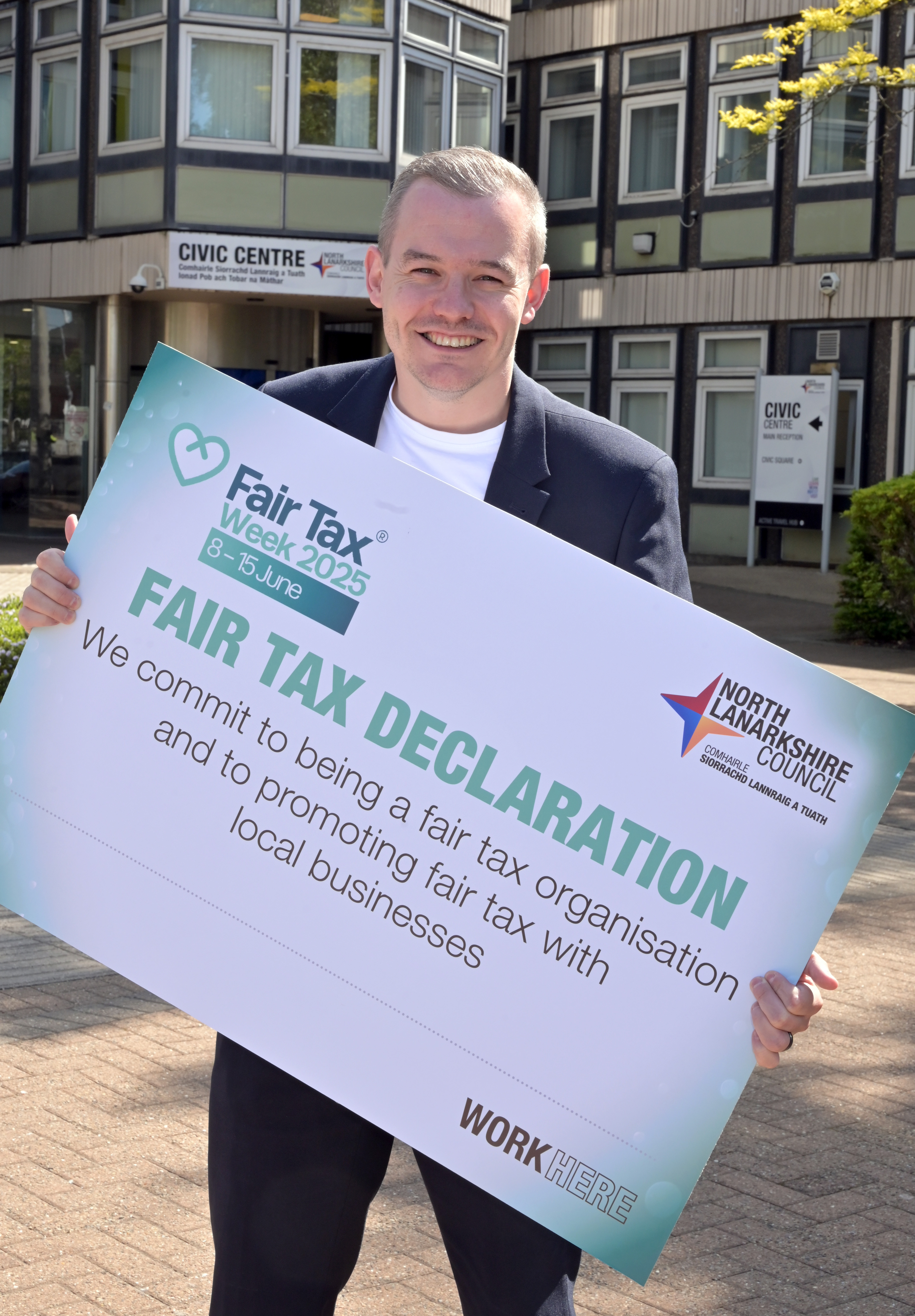We have committed to operating responsible tax conduct as part of Fair Tax Week (8-15 June 2025).
As part of the commitment, the council will continue to promote fair tax practices to suppliers and local businesses.
Fair Tax Week is a recognition of the businesses and organisations that are proud to promote responsible tax conduct, and a celebration of the positive contribution this makes to society.
Signing the Declaration commits cities, towns and districts to pursuing exemplary tax conduct in their affairs, require greater transparency from suppliers and join calls for more meaningful powers to tackle tax avoidance amongst suppliers when buying goods and services.
Councillor Andrew Duffy-Lawson, Finance and Resources Convener is urging suppliers and local businesses to engage with ethical tax conduct after the council agreed a motion in June 2024 to support fair tax conduct.
He said, “We know that there are multi-national companies who use loopholes in the tax system to avoid paying what they owe. As a council that receives significant public funding, we must recognise that tax evasion means less funding to support vital public services such as education, roads, health and social care and much-needed support for local communities.
“It’s imperative that we lead by example to ensure that our services continue to support the most vulnerable people in our communities, particularly with public spending being under such immense pressure.
“As a real Living Wage employer that is committed to fairness and equality, Fair Tax Week is an opportunity to promote greater transparency around responsible tax conduct among our suppliers and contractors, including implementing IR35 robustly, as well as encouraging local businesses to pay their fair share of tax.”
A recent poll from The Fair Tax Foundation found more than two-thirds (68%) of Scots agree that the government and local councils should consider a company’s ethics and how they pay their tax as well as value for money and quality of service provided, when undertaking procurement.
At the same time, research has found that c.15% of public contracts in Scotland have been won by companies with links to tax havens. However, current law significantly restricts the ability of councils to either penalise poor tax conduct or reward good tax conduct, when buying goods or services.
Councillor Duffy-Lawson continued, “We are also calling for urgent reform of EU, UK and Scots law to enable local authorities to better penalise poor tax conduct and reward good tax conduct through their procurement policies. That way, tax practices will improve and local services can be better funded.”
